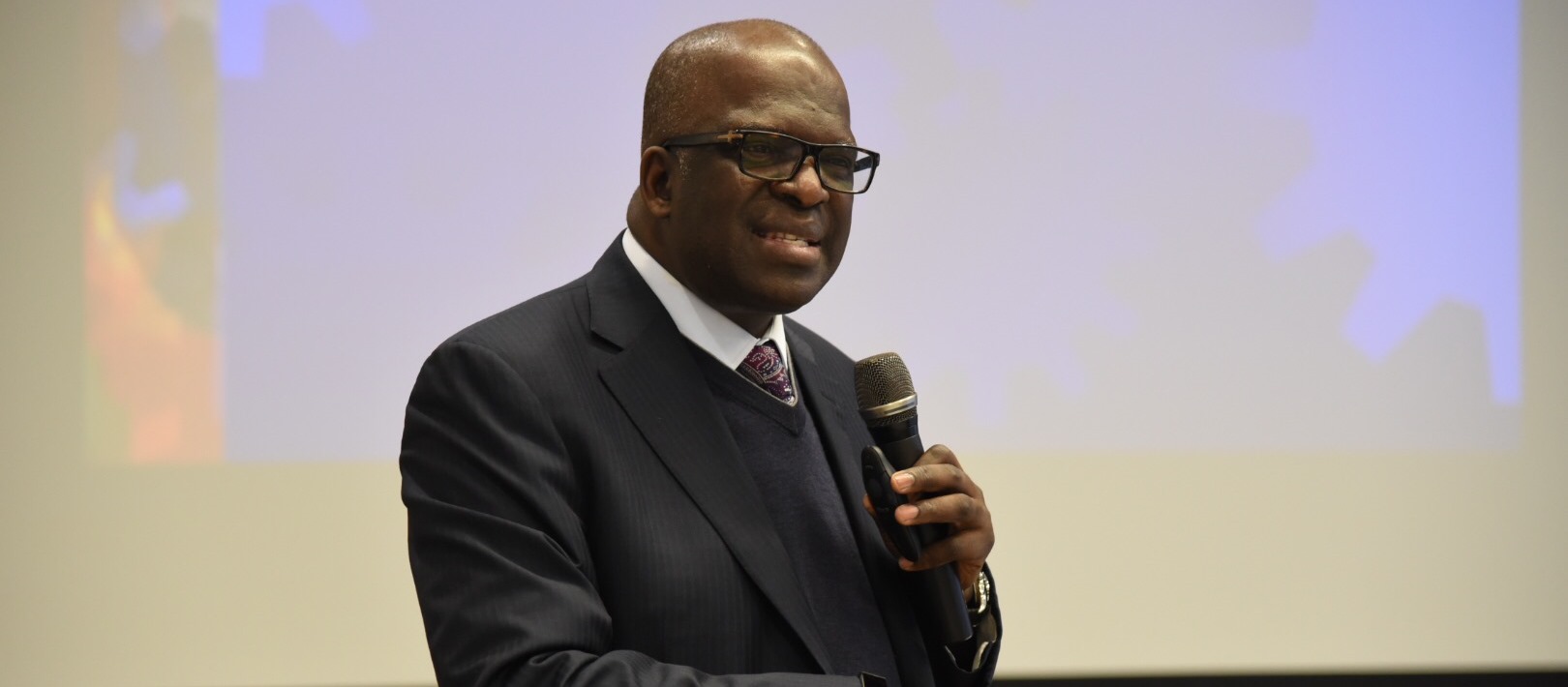
The belief that all human beings are created in the image of God is the most powerful reason for building bridges of understanding among religions.
This was the message of keynote speaker Dr. Ganoune Diop for religious communicators at the annual convention of the Associated Church Press. Diop, who is Director of Public Affairs and Religious Liberty for the worldwide Seventh-day Adventist Church, spoke at a convention lunch April 28.
Being created in the image of God means that all human beings are “endowed with dignity and infinite worth,” Diop said. “If we believe that, we start looking at people differently.”
Diop, who is Secretary General of the International Religious Liberty Association, also stressed the importance of religious freedom—a corollary of human dignity.
“God could have created robots,” he said, but instead God gave us the freedom to choose to love and follow God or not. “Love cannot be forced,” he said, adding that “the love of God is what motivates us to build bridges.”
“Religious freedom undergirds all human rights,” Diop said. It is the basis of all other freedoms: of thought, of conscience, of expression, of the press, of assembly, of association.
Diop compared today’s interfaith bridge-builders to the coming together of nations following the devastation of World Wars I and II. The United Nations was founded, he said, by people who decided, “Instead of fighting one another, let’s build something.”
In order to build a bridge, he added, “we need to know who is on the other shore.” This means getting beyond labels such as Jews, Muslims, Hindus, etc., to understand “the people behind the names.”
In 2 Corinthians 5:20, Christians are called to be “ambassadors for Christ,” Diop said. “An ambassador is thoroughly briefed about the country to which he or she is sent.” This means Christians ought to be informed about the worldview and values of the people with whom we are attempting to build relationships.
“We build bridges in order to have a space where people can communicate,” he added. “This is more necessary than ever because of the state of our world”—a world increasingly divided by nationalism, tribalism, and various ideologies.
Diop held up Jesus Christ as the model for those seeking to build interfaith relationships. In his ministry, Jesus used tools such as hospitality, listening, and meeting people where they are.
Born in Dakar, Senegal, Diop has lived and worked on three continents as a church pastor, a professor, and a director of global mission study centers. He has also served as the Seventh-day Adventist Church’s liaison to the United Nations in New York and Geneva, and as its representative within the international community of civic and political leaders.